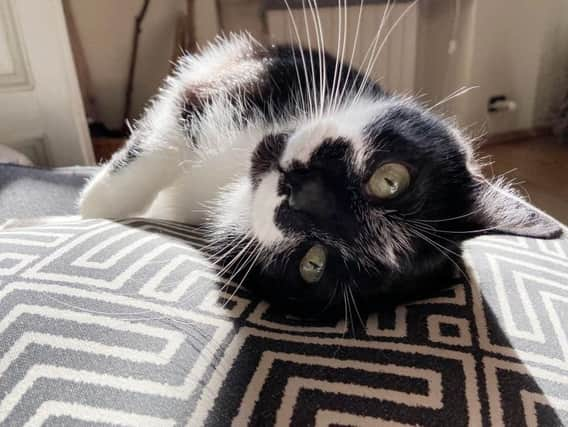Banbury vet says first case of cat infected with Covid-19 is 'not unexpected'


Richard Byrne, of West Bar Veterinary Hospital, said owners do not need to wash their pets and should observe normal, good hand-washing practice themselves.
His advice came as researchers at the University of Glasgow confirmed the first case of Covid-19 in a cat after screening hundreds of samples from felines. The pet is understood to have caught the virus from its owners, who were Covid-19 positive. The cat and its owners have since made a full recovery and there was no transmission of the virus to other animals or people in the household.
Advertisement
Advertisement
Professor Margaret Hosie from the MRC-University of Glasgow Centre for Virus Research said: “There have been sporadic reports of cats from COVID-19 households in Hong Kong, Belgium, France, Germany, Switzerland, Spain and the USA that tested positive for SARS-CoV-2 and were presumed to be infected from their owners but this is the first report of an infected cat in the UK."
Mr Byrne said:"Although this is the first confirmed case of an animal infection with the COVID-19 coronavirus strain in the UK it not unexpected as occasional cases have been reported in a number of other countries and various animal species over the last few months.
"I understand the pet cat was presented to a vet with respiratory illness. A test sample was taken to look for common cat respiratory viruses and sent to the leading feline virus laboratory at the University of Glasgow. As part of a research programme the sample was also tested for SARS-CoV2 which causes COVID-19 in humans and found to be positive. The cat I understand showed mild respiratory signs and recovered in a few days."
Mr Byrne said he thought it important for readers to understand:
Advertisement
Advertisement
- there is no evidence to suggest the animal was involved in the transmission of disease to its owners
- there is no current evidence that pets are able to transmit the virus to people
- good hand hygiene, regular washing of hands including before and after contact with pets or their food, should be practised
- there is no evidence pet owners need to wash their pets to control the spread of coronavirus
Advertisement
Advertisement
- if pets are showing signs of respiratory problems they should seek veterinary advice and inform the vet if they or members of their household are suspected of having or have had COVID-19 infection.
Mr Byrne said the World Organisation for Animal Health has produced a very detailed information leaflet on COVID-19 available here.
Professor William Weir of the University of Glasgow’s School of Veterinary Medicine said: “The significance of SARS-CoV-2 as a feline or canine pathogen is unknown as cats and dogs with reported infections usually recover and there has been no evidence of transmission occurring between cats or dogs in the field.”
During the current COVID-19 pandemic, naturally occurring SARS-CoV-2 infections have been reported in cats, non-domestic cats and dogs. Scientists have also shown that cats, ferrets and hamsters are susceptible, whereas ducks, chickens and pigs appear not to be susceptible to SARS-CoV-2 infection.